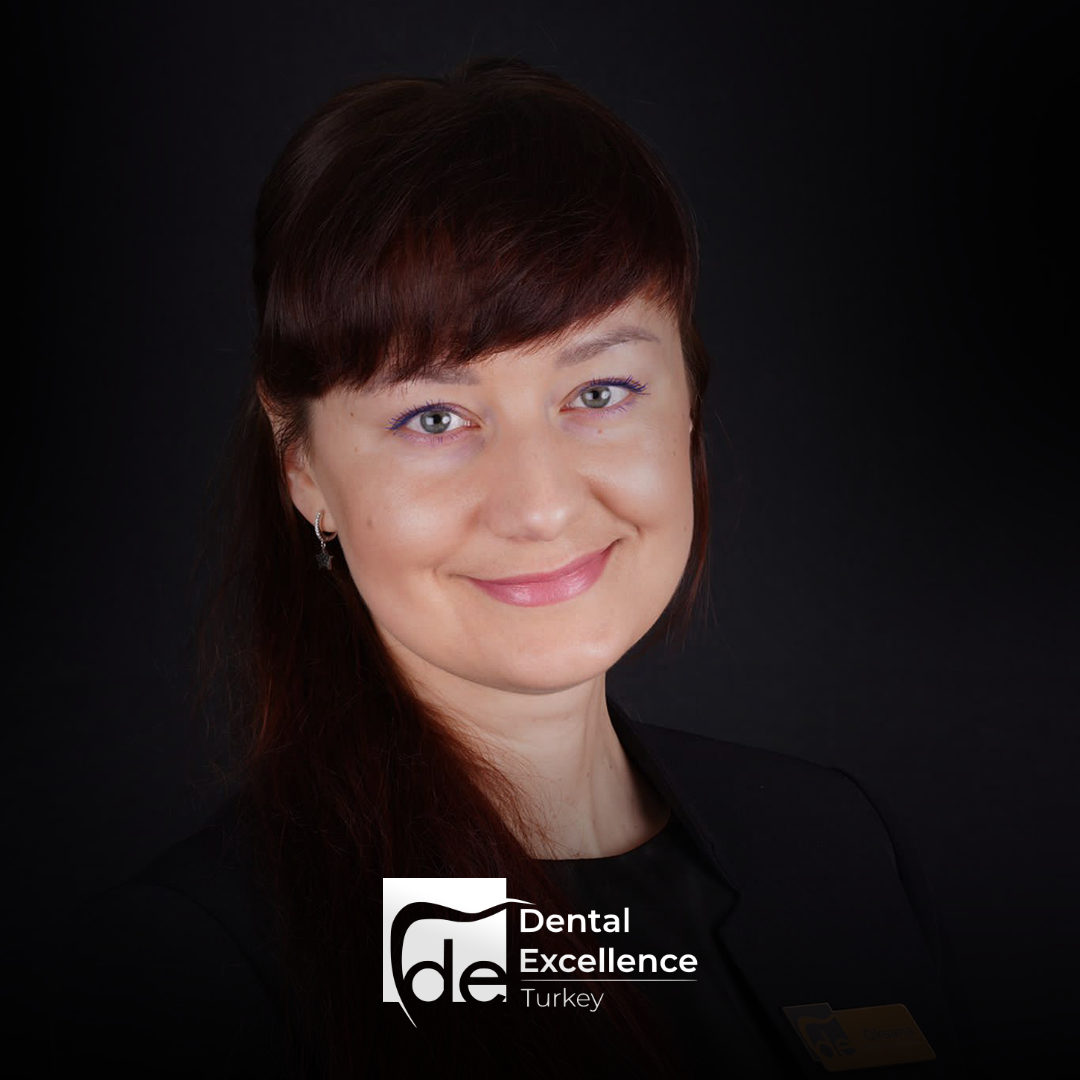How Long Do All-on-4 Implants Last?
All About Dental Treatments in Turkey
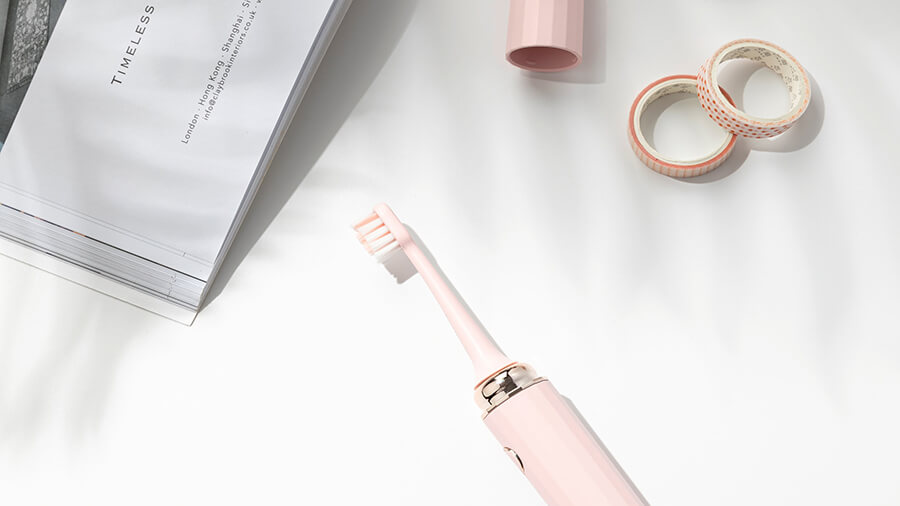
As long as All-on-4 implants fuse with the patient’s bone during the healing process, they should have a lifespan that is similar to traditional implants. Most dental professionals agree that patients can expect All-on-4 implants to last at least 20 to 25 years, with the potential to last the duration of the patient’s life.
Diet Restrictions Following Your Surgery
The best way to avoid complications following your All-on-4 treatment is to maintain a soft diet for a set period of time. Eating tough foods immediately after your surgery could compromise their longevity, which is why you should keep the following diet restrictions in mind. For the first three months after your surgery, stick to a diet of:
- apple sauce,
- cooked or ripe fruits,
- soft veggies,
- scrambled eggs,
- roasted and stewed chicken,
- broiled fish,
- tofu,
- soups with soft and small pieces of food,
- pancakes,
- muffins,
- waffles,
- mashed potatoes,
- soft-cooked pasta,
- oatmeal,
- pudding,
- ice cream.
Prosthesis Lifespan
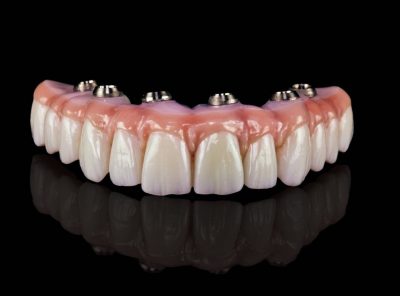 It is important that our Dental Excellence patients understand that All-on-4 implants are made up of two parts: the implants themselves and the prosthesis that is supported by the implants. Although All-on-4 implants can last a lifetime with good oral health, the prosthesis is likely to wear down more quickly.
It is important that our Dental Excellence patients understand that All-on-4 implants are made up of two parts: the implants themselves and the prosthesis that is supported by the implants. Although All-on-4 implants can last a lifetime with good oral health, the prosthesis is likely to wear down more quickly.
Dental restorations, like fixed dentures, are susceptible to wear and damage associated with biting and chewing. Dental restorations are composed of durable materials, but they are likely to require replacement at some point. With proper care and good oral hygiene habits, the prosthesis that is attached to All-on-4 implants should last at least 10 to 15 years. When the prosthesis needs to be replaced, we can do so without disrupting the implants that are in the jaw.
Extending Treatment Results
The lifespan of All-on-4 implants, including the prosthesis piece, depends largely on a patient’s oral habits. We recommend that our Dental centre patients practice these tips to extend the lifespan of All-on-4 treatment results:
- Visit your dentist for cleanings every 6 months;
- Brush and floss regularly;
- Limit foods that are particularly hard, crunchy, or sticky;
- Avoid using the teeth as tools (opening bottles or bags with your teeth, don’t chew pencils or ice cubes);
- Refrain from grinding or clenching the teeth;
- Use a custom-made night guard at night to protect your All-on-4 implants;
How Do I Clean All-on-4 implants?
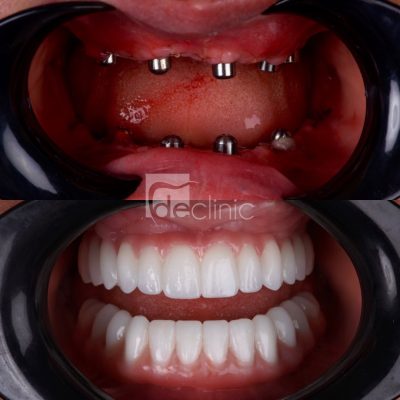 Since the bridge portion of the restoration is fixed, cleaning it with a typical toothbrush is not the most ideal. Instead, it’s encouraged that you use a Waterpik at least twice a day. Look for the access points that allow for the greatest dislodgment of food debris. Keep the speed of the Waterpik to a low or medium setting to prevent tissue detachment.
Since the bridge portion of the restoration is fixed, cleaning it with a typical toothbrush is not the most ideal. Instead, it’s encouraged that you use a Waterpik at least twice a day. Look for the access points that allow for the greatest dislodgment of food debris. Keep the speed of the Waterpik to a low or medium setting to prevent tissue detachment.
Next, make sure to floss underneath the bridge daily. Most dentists will recommend brands that have worked for other patients, whether they should be of the thinner variety or disposable versions attached to handles for easier movement. Take your time when customizing your oral care as it will be very important in extending the life span of your implants. You may also want to consider an interdental tooth brush specifically design for dental implants, which can be found in most major grocery stores and pharmacies. To clean the portion of the bridge that transitions to soft tissue, use a sulcus brush. This brush is often considered to be more comfortable as it is much smaller than a normal toothbrush. Use it to clean and massage areas of the bridge that come into contact with tissue.
Bruxism and All-on-4 implants
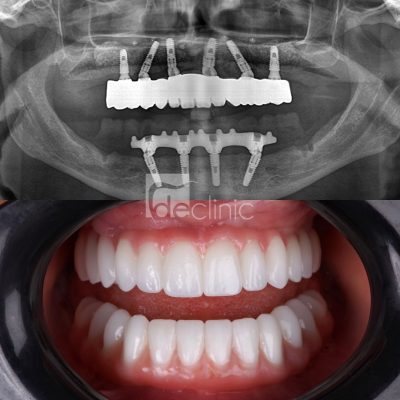 Normal chewing places pressure on the bone through teeth or implants. For example, a steak needs about 40 pounds of pressure from your jaws to chew. Science has found that in the actual act of chewing, the teeth are only touching for 5 minutes in total during a meal. Contrast that to unconscious clenching or grinding your teeth, when your teeth can touch for 8 hours per day in total and can press on each other with 200 to 500 pounds of pressure. That is a lot of force, and that can easily break a natural tooth.
Normal chewing places pressure on the bone through teeth or implants. For example, a steak needs about 40 pounds of pressure from your jaws to chew. Science has found that in the actual act of chewing, the teeth are only touching for 5 minutes in total during a meal. Contrast that to unconscious clenching or grinding your teeth, when your teeth can touch for 8 hours per day in total and can press on each other with 200 to 500 pounds of pressure. That is a lot of force, and that can easily break a natural tooth.
Although teeth grinding can be caused by stress and anxiety, it often occurs during sleep. Most people are unaware that they grind their teeth. However, a dull, constant headache or sore jaw is a telltale symptom of bruxism. In many cases people suffering from TMJ/TMD report chronic pain in the jaw, teeth, face, head, neck, shoulders, or back, or any combination of these areas.
Night guards are designed to remove stress from the TM joint and reduce the damage from grinding and clenching. Train yourself not to clench or grind your teeth. If you notice that you clench or grind during the day. Think lips together, teeth apart. This practice helps train your jaw muscles to relax.
All-on-4 implants are a strong and durable alternative for patients to consider when traditional dental implants aren’t a good fit. If you would like to learn more about the All-on-4 treatment process, get in touch with the dental team at Dental Excellence Turkey, or call us to schedule an appointment with one of our experienced dentists.
START YOUR JOURNEY
Tell our specialist dentists about your teeth and get a free treatment plan.



